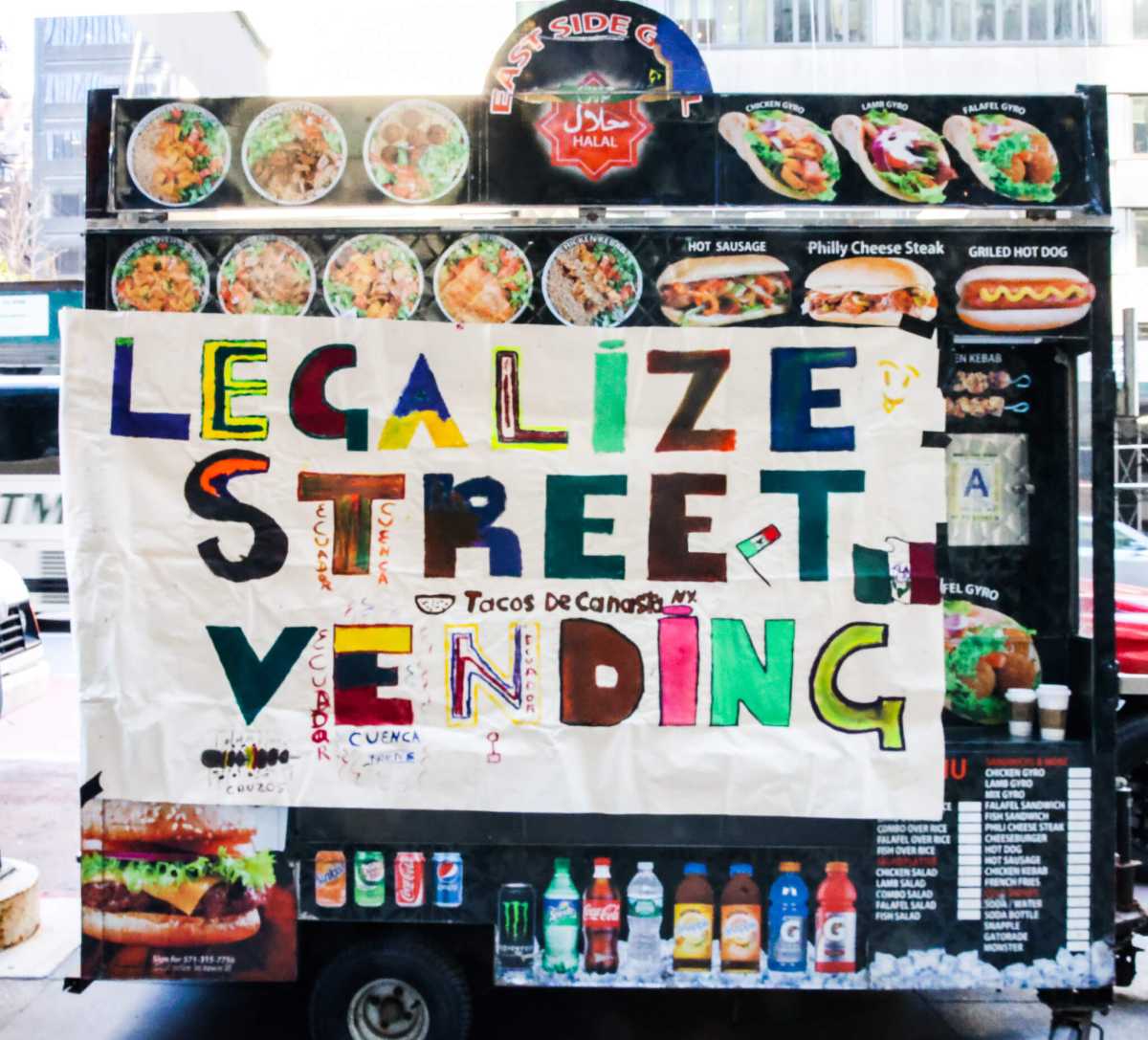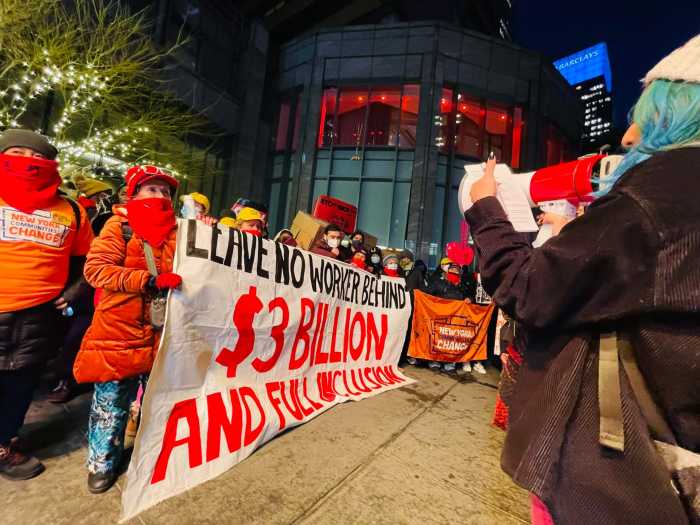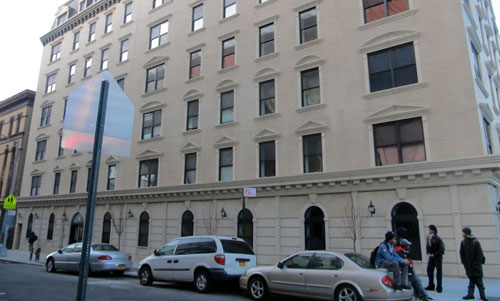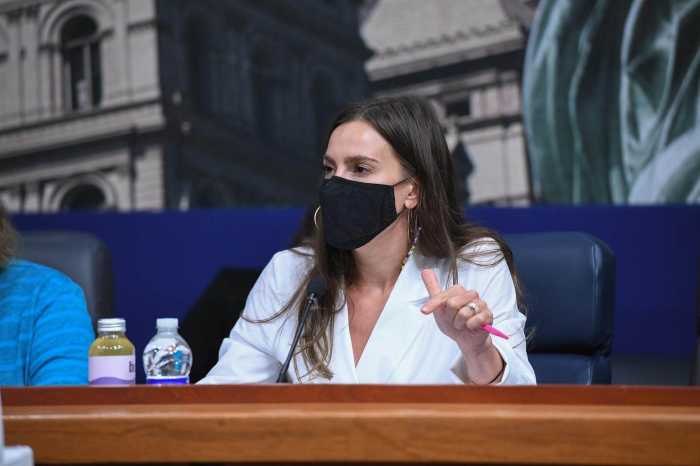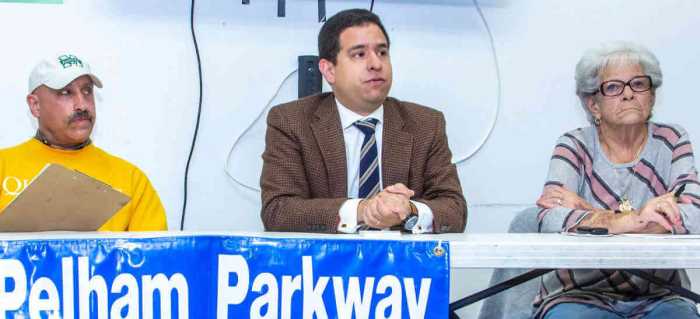On the concrete streets where a workforce of street vendors have made their living selling goods and products to pedestrians, more than 20 NYC-based vendors camped outside Gov. Kathy Hochul’s midtown Manhattan office all day Monday demanding systemic change to their industry.
Monday’s 24-hour demonstration outside the governor’s office is another in a string of public protests — including a Feb. 16 protest outside the Sheraton Times Square Hotel where Hochul received the backing of state Democrats in an upcoming gubernatorial primary — by street vendors and advocates calling on the state to formalize and decriminalization the street vending industry.
Jim Urso, a spokesperson for the governor, said that Hochul will continue to negotiate with lawmakers over the coming weeks as the budget deadline approaches at the end of March.
“Governor Hochul’s executive budget includes bold initiatives to embrace this once-in-a-generation opportunity to invest in our future, and we look forward to continuing to work with the legislature to finalize a budget that serves all New Yorkers,” said Urso.
However, square one for vendors, according to Mohamed Attia, executive director at the nonprofit Street Vendor Project, is for the city to do away with its “antiquated” cap on the amount of licenses the city allows for street vendors.
Only 853 total licenses are available for non-veteran merchandise vendors, and by 2032, there will be just 9,000 supervisory licenses available statewide for mobile food vendors. But advocates say it won’t be enough to meet the ever-increasing need and demand for proper licensure.
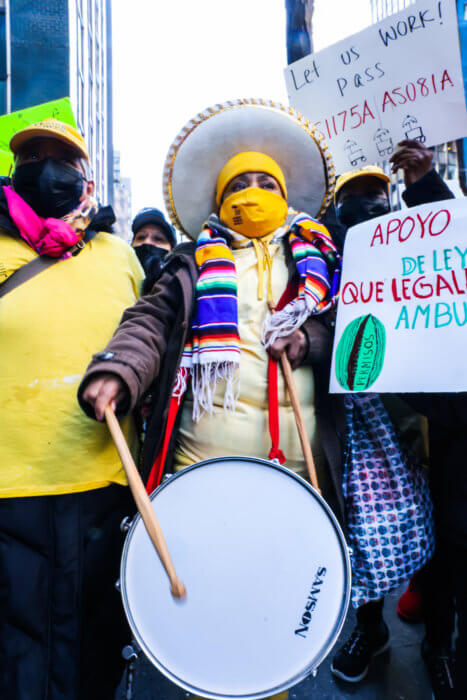
In January 2021, vendors saw some progress when the New York City Council passed Intro 1116, introducing 4,000 new supervisory licenses for mobile food vendor permits over the course of the next 10 years, but those permits won’t be released until sometime this year, and will not be enough to meet the demand for the estimated 20,000 would-be entrepreneur vendors in New York City alone — primarily immigrants, veterans and women of color.
A few vendors who participated in Monday’s marathon protest told the Bronx Times that they’ve been shut out of the city’s licensure process and have been continually hit with excessive fines from the NYPD and city’s Department of Consumer Worker Protections (DCWP).

Applications for street vendors have also stockpiled on the city’s waiting lists.
Data compiled by the Bronx Times shows that among the 11,679 open applications on a waiting list for licensure from DCWP, 2,981 Bronx-sited vendors are still awaiting approval or denial for official general vendor licensure by the city — the second-highest waiting list total behind Brooklyn’s 3,069 vendors.
Elyse Delgado, a Fordham Road vendor, said she’s been on the city’s waiting list for licensure for nearly 10 years and has been cited numerous times by the NYPD in the past year.
“There’s no break. There’s no empathy from the city, from the law enforcement and from the officials who treat us like criminals for trying to provide for our families,” Delgado told the Times.
Intro 1116 was supposed to shift the enforcement of street vendors from the NYPD to the agency now known as DCWP, in an effort to decriminalize street vendors, who’ve long cited harassment and destruction of their property by the NYPD.
However, in the third quarter of 2021, the DCWP actually issued more tickets than the NYPD did in the equivalent amount of time in 2019, with the main offense being unlicensed street vending.
“I was once arrested for selling cut fruits — it was an awful experience,” said María López, who sells Mexican food in the Bronx and was one of the 24 vendors to camp out on Monday. “It happened right in front of my four-year-old daughter. To this day we live with this memory. I am a vendor because it allows me a flexible schedule to take my daughter to medical appointments. I just want a license to work safely.”
DCWP officials told the Bronx Times last month that they are trying to “balance” enforcement efforts with educational opportunities, in an effort to get more vendors legitimized.
Additionally, S1175 | A5081 would also allow past criminal convictions for street vending to be vacated to ensure no federal immigration consequences.
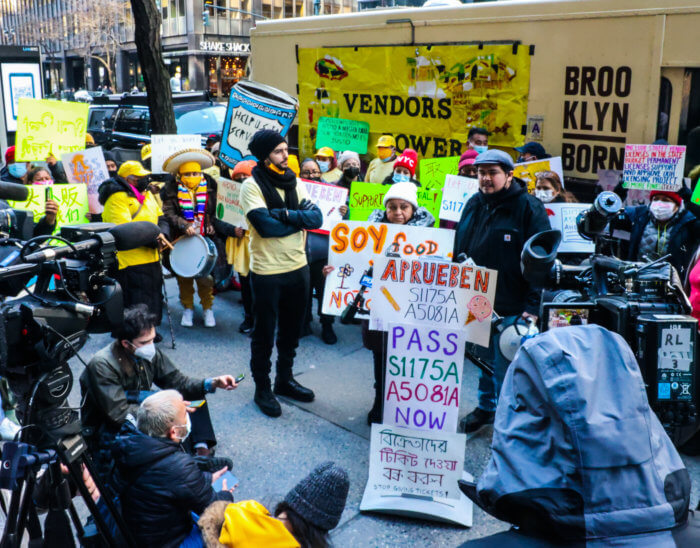
Advocates say that continued criminalization has forced vendors to either rent a permit from existing permit-holders on an underground market for up to $25,000 or vend without a permit and run the risk of heavy $1,000 fines, often the entire weekly sales of a vendor.
“The caps have been around for decades, and people are looking to recoup some losses they suffered during the pandemic,” said Matt Shapiro, legal director with the Street Vendor Project. “but they can’t receive or access licenses or permits to work legally.”
Reach Robbie Sequeira at rsequeira@schnepsmedia.com or (718) 260-4599. For more coverage, follow us on Twitter, Facebook and Instagram @bronxtimes.

